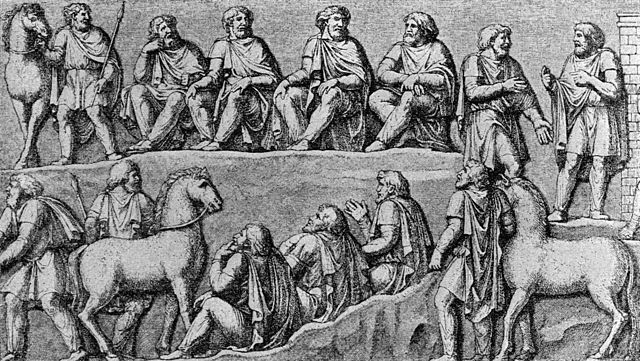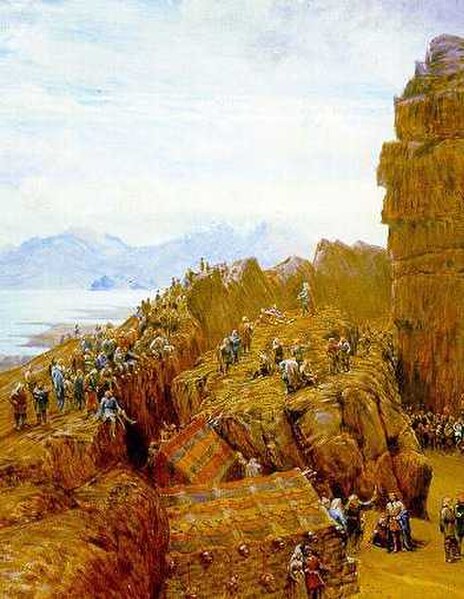The Folketing, also known as the Parliament of Denmark or the Danish Parliament in English, is the unicameral national legislature (parliament) of the Kingdom of Denmark—Denmark proper together with the Faroe Islands and Greenland. Established in 1849, until 1953 the Folketing was the lower house of a bicameral parliament, called the Rigsdag; the upper house was the Landsting. It meets in Christiansborg Palace, on the islet of Slotsholmen in central Copenhagen.
Folketing
Bertel Haarder (V) making a speech
View from the gallery
Christiansborg Palace, the seat of the three branches of government: the Folketing, the Prime Minister's Office and the Supreme Court. Here it is surrounded by posters, a typical scene during an election season.
A thing, also known as a folkmoot, assembly, tribal council, and by other names, was a governing assembly in early Germanic society, made up of the free people of the community presided over by a lawspeaker. Things took place at regular intervals, usually at prominent places that were accessible by travel. They provided legislative functions, as well as being social events and opportunities for trade. In modern usage, the meaning of this word in English and other languages has shifted to mean not just an assemblage of some sort but simply an object of any sort.
A Germanic assembly, by Charles Rochussen
Germanic thing, drawn after the depiction in a relief of the Column of Marcus Aurelius in Rome (193 CE)
The Icelandic Althing in session, as imagined in the 1890s by British artist W. G. Collingwood.
Þorgnýr the Lawspeaker showing the power of his office to the King of Sweden at Gamla Uppsala, 1018. The lawspeaker forced King Olof Skötkonung not only to accept peace with his enemy, King Olaf the Stout of Norway, but also to give his daughter to him in marriage. Illustration by C. Krogh.








